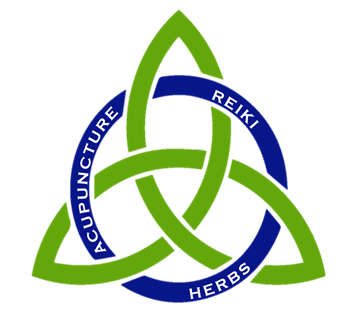March is the month dedicated to Endometriosis Awareness, so we will be posting a few blog articles to teach what is Endometriosis, how does it effect women day to day, how does it effect the monthly cycle, and natural ways to manage it. We have seen quite a few women have painful periods starting in their late teens and continuing into their 20’s and 30’s. When a woman is ready to start their family, Endometriosis is one of the main obstacles leading to secondary infertility. Chinese Medicine helps work with the root cause of Endometriosis, while decreasing the discomfort of its painful symptoms.
On average it takes a woman to see 7-10 doctors, or specialists, before being properly diagnosed with having Endometriosis. We are trained to see the symptoms and have specific referrals to Endometriosis Specialists to help diagnosis this condition. What exactly is Endometriosis? Endometriosis is when the endometrial tissue exists outside of the uterus. Normally, the endometrial tissue is the lining we bleed out during our period. This tissue grows in the beginning phase of our cycle by increased levels of estrogen and thickened by the combination of estrogen and progesterone after ovulation to secure a potential egg to implant and be nurtured. If no pregnancy occurs, then, this tissue is “pinched” off for bleeding. When the “pinching” action happens, the cramping sensation may occur. When the endometrial tissue is outside of the uterus, it will still respond to these hormonal changes happening in the uterus. So the endometrial cells outside will cramp and swell. This can lead to long-term pain especially around ovulation and before/during/maybe after a period.
Some symptoms to look out for with Endometriosis includes: persistent, severe menstrual cramping, random spotting throughout the month, intense pain for a few days before their period, pain with sex, urination, and passing bowel movements. Some women never experience symptoms till their are diagnosed with infertility.
The cause of endometriosis is unknown in conventional medicine. Some ideas include “a faulty immune system, genetics, high fat (saturated) diets, long-term lack of exercise, history of sexual abuse, hormonal imbalanced never addressed, environmental toxins, and stress”. There are some theories with evidence supporting how endometriosis results from and causes immune and endocrine system problems. What would this look like? In the monthly cycle, “women with endometriosis can have shorter, less functional luteal phase due to faulty progesterone secretion and metabolism. This effects the cycle from ovulation till Day 1 of bleeding. This can contribute to “early miscarriage and infertility”.
In addition, higher stress levels cause “elevation in the hormones cortisol (the stress hormone) and prolactin (helps produce milk), which are higher for women in severe endometriosis”. What does this mean? Both cortisol and sex hormones such as progesterone come from pregnelone (which is the Mother hormone to sex hormones). They are all part of the same system used for different functions. When the body is under high pain from endometriosis, high stress in life, and inflammed from an autoimmune reaction; then, all the energy will be shifted to cortisol to try to apease the high stress state of the body, not shifting or producing enough sex hormones for the hormonal balance and a healthy cycle. Your body will choose survival first if it is overwhelmed and feels under-attack. The Immune system “should keep the endometrial tissue from implanting outside of the uterus”, but once it develops outside the uterus-the immune system can make antibodies to this tissue, causing inflammation and hormonal chaos”.
So how do we unravel this uncomplicated journey?
Chinese Medicine (TCM) has a different view in how the body becomes out of balance for conditions such as Endometriosis. TCM considers the symptoms, the state of the internal body, tongue and pulse diagnosis, and emotional state of the person to customize a treatment plan which usually includes Acupuncture, Herbal Medicine, Nutrition, and Cupping for Endometriosis.
When tissues are inflammed with pain and swelling, health is affected. With good flow of the qi (oxygen/gases across the tissue), blood, lymph, and myofascial (space between the organs/muscle/skin); then, there is less pain, a balanced immune system, less stress, and improved menstrual cycles. We review the monthly cycle in great detail to understand how the hormones are shifting, how many days per shift, and detecting through either body temperature/cervical mucus changes. We use phasing of herbal formulas to help optimize the monthly cycle, while using acupuncture to decrease pain, calm immunity, release endorphins/enkephalins (feel good hormones), and improve flow to the reproductive organs effected by endometriosis.
When there is endometrial tissue in the body cavity, TCM focuses on the adrenal health because the adrenals (glands sitting on top of the kidneys) are the foundation of hormonal health. If there is adrenal deficiency (known as Kidney Yang xu); then, we need to determine if there is digestive weakness (Spleen qi xu) with, or without, qi stagnation. This is determined if there are clots while having a period; or if one has no period. Spleen qi xu helps determine how the pancrease, spleen, and stomach are processing and absorbing nutrients to supply the basic foundation for hormonal health and immune health.
TCM is a safe, effective, and drug-free approach in treating and managing Endometriosis. It works well alongside conventional treatment methods such as the Endometrial Excision surgery and IVF/IUI journey to support fertility challenges.
Resources:
-
“Endometriosis”. Herbal Crossroads. Kan Herb Company. May 2013.
-
The Treatment of Infertility with Chinese Medicine. Jane Lyttleton. Churchill Livingsonte 2013, 2nd edition.

